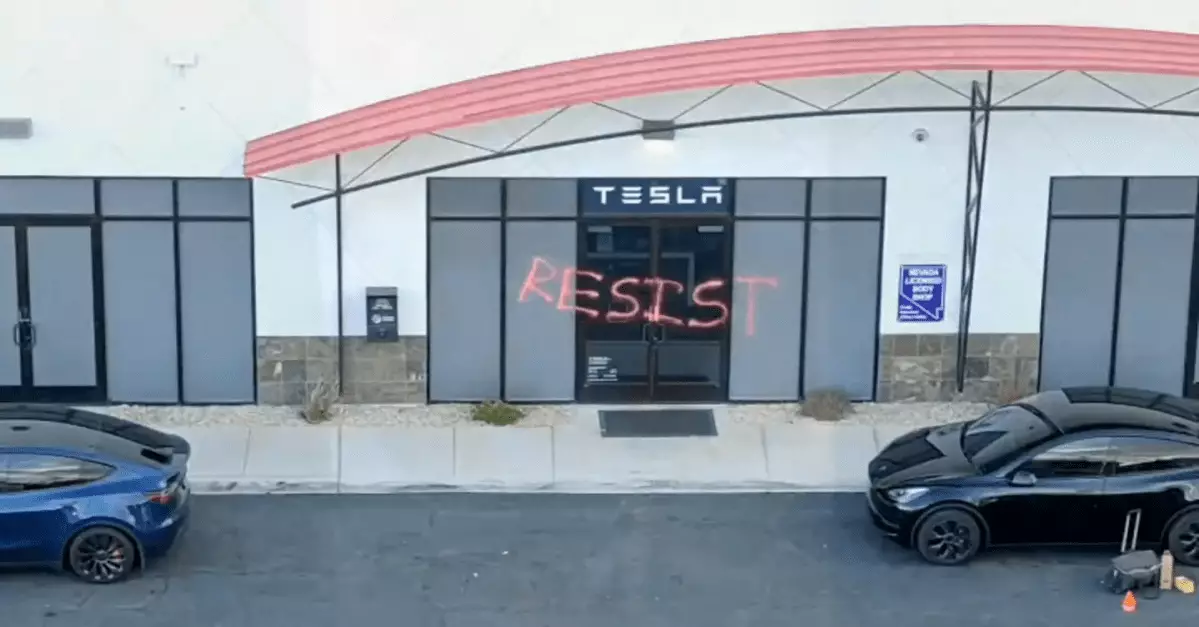In a shocking turn of events, the ongoing anti-Tesla sentiment has culminated in a series of violent incidents that are refocusing the narrative around electric vehicles and domestic unrest. The Trump administration is reportedly considering classifying vandalism against Tesla vehicles as domestic terrorism. This initiative, underpinned by the recent violent acts, raises profound questions about the nature of dissent in the era of technological innovation and the lengths to which individuals will go to express their grievances. The events are not merely vandalism; they betray a deeper societal rift regarding progress, capitalism, and environmental responsibility.
The Incidents: An Overview
Recently, the city of Las Vegas experienced a harrowing act of violence when a vandal, clad in black, launched Molotov cocktails at a Tesla collision center. The ensuing chaos led to two Teslas catching fire, prompting a swift response from local fire officials and police. The Las Vegas incident, which was initially categorized as simple arson, has now escalated to a federal investigation led by the FBI’s joint terrorism task force. This qualifies not just the act but also the intent behind it—an alarming reflection on how opposition to corporate entities and their practices can spiral into overt acts of aggression.
In Kansas City, the narrative unfolded similarly, with a parked Cybertruck catching fire, sparking a fire that affected another vehicle adjacent to it. Officers reported noticeable smoke before flames erupted, and efforts to extinguish the blaze were unsuccessful. These incidents underline a troubling pattern; they are manifestations of a growing discontent that has evolved from mere criticism of Tesla’s business practices into actual hostility against its products.
Public Figures and Their Response
In the aftermath of these attacks, Tesla’s CEO, Elon Musk, has labeled these violent episodes as acts of terrorism. His rhetoric underscores a cultural shift in how we view corporate targets and their public persona. Musk’s perspective that Tesla is simply a company focused on innovating and improving sustainability adds a layer of irony: while the company strives for progress, it finds itself under siege from certain factions of society who feel threatened by rapid change.
Yet, the situation prompts a broader dialogue. Are these actions genuine expressions of dissent against a perceived threat, or are they merely manifestations of misguided anger? While Musk calls for rationality and understanding from those contemplating similar actions, we must ask ourselves why such extreme measures are being considered in the first place.
The Implication for Environmental Advocacy
These incidents are more than just isolated attacks; they are indicative of a growing schism in public opinion regarding electric vehicles and environmental sustainability. For many, Tesla is at the forefront of an evolving industry—advocating for green technologies and challenging traditional automotive paradigms. Still, their swift rise has also incited fury from those resistant to change or those who feel left behind by technological advancements.
The escalation to violence raises significant concerns regarding how advocates and detractors of environmental issues will address their differences moving forward. Will dissent evolve into more constructive dialogues, or will it become defined by discord and extremism? The unfolding narrative will depend on our collective willingness to bridge these divides, without recourse to violence or vandalism.

